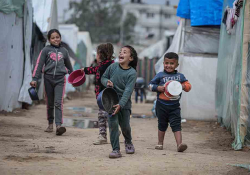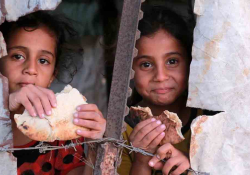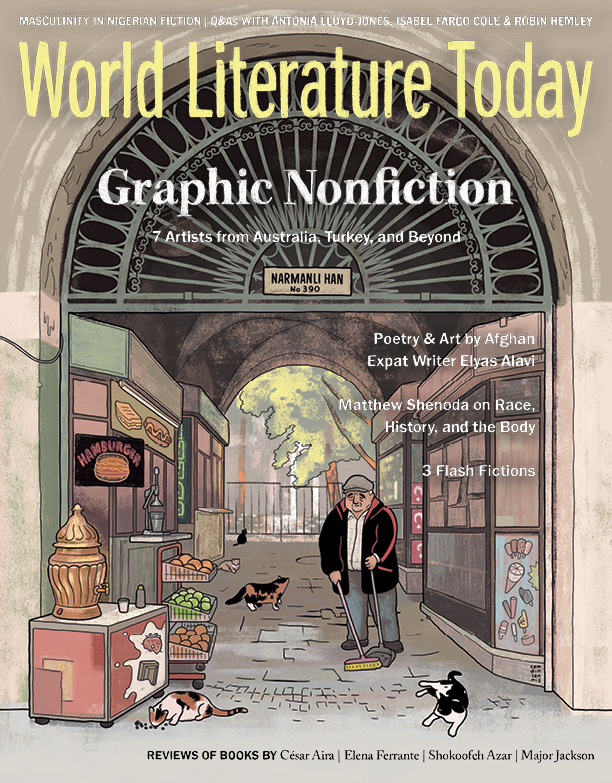Cheating / Death
A girl learns her first lessons about cheating and death at her grandparents’ house, playing cards and Scrabble and listening to them read from the obituaries in the Detroit Jewish News.
When my daughter, Celia, was little, I usually let her win at whatever kiddie games we played. I loved watching her victory-dance around the room as she squeaked and crowed in celebration, so letting her beat me seemed like a no-brainer.
Steven—my husband, Celia’s father—didn’t agree.
“The world doesn’t work that way. She has to learn to lose with grace.”
“It’s Go Fish,” I said. “Besides, what five-year-old is graceful? She falls down getting out of bed.”
He worked himself up as he went along. “You know it’s cheating. It’s a lie. You’re teaching her to lie.”
But Celia was an only child, I argued. A tender girl prone to dread from her toddler years on. She needed a store of wins in her “win/loss” columns, the ones shaping her self-worth through her early years and the horrors of adolescence, then her whole life.
Eventually Steven and I agreed to disagree, and Celia learned a few lessons about losing, anyway: parts in plays and friends and arguments. Never mind I hovered like a hummingbird over her little kid shoulders, trying to make her days benign as a room of softest cotton, not a sharp corner to be found.
Let’s face it, real life is problematic. Parents stumble, people cheat, loved ones leave. Sometimes they up and die.
Because, let’s face it, real life is problematic. Parents stumble, people cheat, loved ones leave. Sometimes they up and die, even though you believed they’d stay with you forever.
■■■■
I FIRST LEARNED the art of cheating during card games with my Bubby at the blocky, white house she shared with Zaidy on Detroit’s northwest side. That’s where my mother dropped me for long summer days, or for weekends during the school year. My mother, a single working gal in the 1970s, was at the time enmeshed in her twin projects of finding herself among various consciousness-raising activities, which she never elaborated on, and locating Mr. Right.
This worked for me. I adored my grandparents with a sticky, desperate sort of devotion that simultaneously frightened me a little. It’s the same feeling that, years later, I found myself attaching to Celia, so it felt unhealthy at times, and I had to take deep breaths, trot once or twice around the block to shift the rising terror of losing her when she was right there, solid and safe.
I also adored Bubby and Zaidy’s house with its squirrelled-away collections of buttons like all the gemstones in the world, of fabric scraps, spools of thread in a hundred hues, all shapes and scents of soap bars. With mothballed clothes from forever ago stored neatly in the closets, just in case they became necessary once more (Bubby remaining half-mired in her Great Depression upbringing).
I certainly appreciated the regular meals and company, since, like my own daughter, I’m an only child. Unlike Celia, I spent a good amount of time alone, at least when I wasn’t visiting my grandparents. They made the effort to notice me, to answer my questions as they went about their business, while Zaidy dug at his meticulous garden during the hot season, or practiced his cello when the weather turned cold. Or as Bubby moved through her house like a teeny whirlwind: scrubbing pans and washing clothes; mending Zaidy’s shirts and socks; transforming steak into burger by latching the ancient, steel grinder onto the counter, feeding meat through the top, then turning the handle in wide circles.
As a younger child, I’d follow after them while they did what they did, and picked at them like a triggerfish at coral.
“Why do you boil water just to pour it in the sink?” I asked Bubby.
“To make away with the germs.”
“Why don’t you use Mr. Clean in the spray bottle?”
“What do men know about cleaning?”
“Why do you keep piles of newspaper on the counter?”
“For working on. For cutting the chicken or string beans. When the top layer gets dirty, throw it away and, abracadabra, a fresh counter.”
“Why do you put rocks in the pot before dropping in the seed and covering it with dirt?” I’d ask Zaidy.
“To help with water drainage.”
“Why do you only plant vegetables in the alley?”
“Because tomatoes and cucumbers are jealous of the roses and tulips and lilies, and grow better where they don’t have to look at them.”
“Why does the cello always sound sad?”
“Because it loves the violin, but the violin only loves itself.”
AS I GOT a little older, I learned to leave my grandparents in peace, but always in the afternoons, Bubby took a break from housework and played Go Fish or Rummy 500 with me, games that she frantically, lovingly engineered so I could win every time. We set up in the kitchen at the peeling Formica table, Bubby first removing and carefully folding the towels she placed there as padding for her ironing (as a failed birthday gift, Zaidy once presented her with an ironing board, but she refused to use it).
Then came the shuffling of cards, a mishmash of several decks that Bubby bought incomplete for pennies at rummage sales, then carefully reassembled into full, if disparate, sets. My grandmother, with her painfully arthritic hands, wasn’t much of a shuffler, but Zaidy taught me the “overhand method,” and I’d taken to it like a pro. Every time, I ended with a flourish he referred to as “the bridge,” where I held the half-mingled deck, one hand per side, pressed up from underneath with my middle fingers, then allowed the cards to riffle back into a single stack.
As for the games themselves, we always played two out of three, three out of four, and so on, just in case Bubby lost concentration for a moment and won, thus needing to let me catch up. Mind you, I’d copped on to her cheating early enough, and even requested she stop, let me succeed or fail, fair and square. I didn’t care about winning, I told her. I just liked being with her, and I meant it.
“Of course, Bubalah,” Bubby would respond, not bothering to deny her culpability. But sure enough, the next game and the next, I’d win by exorbitant margins as she merrily tossed her best cards into the discard pile and somehow forgot to put down her matches for display on the table. Just as usual.
LIKE THE OUTCOME of these card games, my grandparents’ house had a changeless quality that became evident in our evening rituals. First we ate dinner, something oversalted and either boiled or fried in schmaltz—or, when Bubby got more health-conscious, margarine. During these meals, Bubby never ate with us but zipped back and forth from stove to table, counter to table, elderly fridge to table, waiting on Zaidy and me. After supper, there came Star Trek reruns on Channel 50, which we all loved and watched so many times we could recite Kirk’s or Spock’s dialogue during pivotal scenes.
Finally, we got down to playing Scrabble. As with Rummy and Go Fish, Bubby remained committed to my success, offering splendid praise at my efforts, or slipping me the occasional S or X, which everyone knew were the best letters—even as it aggravated Zaidy just a little.
Scrabble came with its own, topsy-turvy interpretation of the rules. With Scrabble, it was all about the words, their sounds and potential, how they’d work with the others on the board.
With Scrabble, it was all about the words, their sounds and potential, how they’d work with the others on the board.
“Can I make ‘eek’ like a scream?” I’d ask. “It fits with ‘yowl’ and ‘zoinks.’”
“Such a wonderful word,” Bubby would say while Zaidy narrowed his eyes and nodded.
Meanwhile, Bubby and Zaidy filled the board with Yiddish, oy showing up nearly every game. But they’d also been known to use feh, dreck, goy, shlep, bubkes, and others. As a group, we sometimes helped each other make the really good words, the ones that tasted extra sweet in our mouths when we read them aloud.
Through my childhood, my grandparents and I cheated our way through Scrabble tournaments, Bubby keeping score and alternating the wins at a two-to-one ratio between me and Zaidy. All this culminated one Friday evening when I was thirteen, when Zaidy made plotzing on a triple word score and we were all in excellent moods for the rest of the weekend.
■■■■
I NAMED MY DAUGHTER for Bubby, and Celia shares much of her great-grandmother’s gentle, generous nature, if not Bubby’s (or my own) inclination to throw games. As a family, Steven, Celia, and I have played plenty, Candy Land eventually switching to Scrabble, Monopoly, and so on. Like me, Celia cheats willingly enough, swapping out her crappy letters or cards, taking my good ones when I offer—much to Steven’s horror. However, winning remains her firm goal, the final adding up of points, and coming out top of the heap.
Maybe I caused this, with my penchant for letting her win early on. Bubby did the same, of course, but unlike me who sometimes got frustrated with my forced victories, Celia came away with the idea that real payouts only occur at the end of the game. So the details of play become mere stepping-stones to the final, heady ambition—a victory so resounding it’s stamped in time, in record books or people’s memories. So it survives beyond us.
■■■■
AS WITH CHEATING, I learned my first practical lessons about death at my grandparents’ house, in this case from obituaries in the Detroit Jewish News, a paper Bubby and Zaidy subscribed to from the moment of its inception in 1942, and which they had delivered to their home on Fridays, then saved to read until Sunday.
I wasn’t thrilled about the Jewish News portion of my visits, when Zaidy retrieved it from the rarely used dining-room table and Bubby got down to analyzing the obituaries—of old friends and near-strangers and people with familiar names that she and Zaidy might have known way back. Back when Zaidy got out regularly for his job as a music teacher for the Detroit Public Schools or to practice for his chamber music workshop. Back when Bubby left the house more than once a week for furtive, anxiety-fueled grocery trips.
As my grandparents became more insular, I imagine the newspaper provided a vital link to the outside world. Every Friday afternoon, they waited for it to be delivered by Joe Spitzer, a man hovering in late middle age, whom they persisted in referring to as their “paperboy.”
“Is the paperboy here yet, Harry?” Bubby would ask several times over the course of the day, and she’d place extra emphasis on the word “boy” and chortle a little.
Zaidy would get up and look out the front window, which faced busy Outer Drive. He’d scan this way and that for slowing cars, then respond, “Why, no, Celia Dear. The paperboy hasn’t arrived, but he should be along any moment with his cane and false teeth in hand.”
Personally, I didn’t think much was funny about the Jewish News.
After Sunday breakfast, Bubby and Zaidy settled into their special chairs, Zaidy half-reclined in his decrepit green lounger held together with strategically placed duct tape and Bubby perched in her delicate wooden chair that folded flat when she needed to run the carpet sweeper behind it, then unfolded again like a butterfly growing its wings.
On all but the brightest days, Bubby started the process by telling Zaidy, “Make the lights, Harry, so we can see the truth in front of our faces.” Meanwhile, I’d slump on the step that led up into the kitchen and try to read my comic books. A couple years later, I’d bring my fantasy or science-fiction novels; Ursula K. Le Guin or Robert Heinlein or Ray Bradbury were among my favorite authors, all of them introduced to me by Zaidy.
But mostly I watched my grandparents as they divvied up the Jewish News, taking turns reading, then discussing, the happenings in local shuls—synagogues—they never attended or the state of affairs in the Middle East, Zaidy stubbornly holding out hope about the rise of Anwar Sadat in Egypt, not to mention Israel’s election of Menachem Begin.
Bubby was more pessimistic.
“It was meant to be our sanctuary, Harry,” she said about Jerusalem. “A place to go when the tsuris starts again. Always the tsuris.” The troubles, I translated automatically, always the troubles. Never mind she rarely left her house, her agoraphobia growing worse as she aged. Israel remained her backup plan, a means of surviving the next calamity—even as she feared that opportunity slipping away.
Eventually, Bubby attacked the obits.
“So many gone now,” she’d sigh while dissecting that week’s crop of deceased Detroit-area Jews, and I understood she was referring not just to recent deaths but to her relatives murdered in Auschwitz. Or maybe to the loss of all the Jewish people who came before, the ones who died in various exterminations and pogroms and inquisitions and forced relocations, while she got to live. Her terrible guilt about this.
Perhaps it was penance, then, how every week she’d run her swollen pointer finger along the columns, memorializing the dead by listing their vital statistics, the diseases that did them in, the parents and children, surviving and not.
Perhaps it was penance, then, how every week she’d run her swollen pointer finger along the columns, memorializing the dead by listing their vital statistics.
“Cancer, Harry,” said Bubby in reference to this or that obituary. Or “heart attack.” Or “kidneys. She always had the terrible kidneys, even as a girl.” As ever, she’d whisper the causes of death, as if speaking them aloud would direct the disasters toward her and the ones she loved, the handful of us remaining. She’d glance at me and follow up with three quick “Kine ahoras,” evil eyes. Just to be safe.
This was her means of cheating, or at least misdirecting, the trauma and death sure to come. Let the evil eye take someone else this time, she was saying. Let her quick thinking be enough to deflect such tsuris from me, one of three granddaughters who meant the world to her.
Meanwhile, Zaidy participated in his own way.
“Oy gavalt,” he’d moan about the death notices as Bubby read them aloud. “We knew each other as young men.” Or “We were the same age.” Or “I’m a decade older.”
In this way, he too cheated death, as he outlived his contemporaries. For a little while anyway. The smallest drops in an endless ocean.
■■■■
NOW THAT MY Celia’s off to college, I’ve been thinking hard about those time droplets, mere glimmers that, taken together, comprise entire lifetimes—and how precious they are, every single one.
I remember how it was when Celia was born, this tiny, squirming creature containing an entire human—fey and fragile, utterly breakable. I tortured myself in those postpartum days and months, those early years. How simple it would be for some stranger to grab her, so I gripped on extra tight. How quickly sickness might overcome her, so I bothered the pediatrician far too often. Because any of a thousand catastrophes could befall my daughter, I quit sleeping; I was frightened all the time. That’s no way to live, so eventually I (sort of) got over it.
I remember how it was when Celia was born, this tiny, squirming creature containing an entire human—fey and fragile, utterly breakable.
But now it occurs to me that in helping my girl win games all those years ago, I might’ve been working my biggest cheat of all: attempting to scam the evil eye forever bobbing in my wake, looking to drown my hard-won, always precarious contentment.
In response, I sent my message on repeat to the malevolent forces all around: “This girl is a winner!” I insisted. “See the success she carries like ribiz—rubies—in all her pockets. She’s got a champion’s spirit and a survivor’s damn good luck. Choose easier prey—my girl’s not an option!” In this manner, I created a magic scenario where, if I just padded Celia’s win column enough, she’d live forever. Longer than me, anyway, the alternative being too terrible to bear. Kine ahora. Kine ahora. Kine ahora.
■■■■
JEWS DON'T EMBALM. The body must remain intact, even into death. It’s something to do with not desecrating God’s image, or possibly Nivil Hamet, the prohibition against humiliation of the dead. I’m not exactly sure, since I wasn’t raised with much cultural knowledge beyond the odds and ends that came from my grandparents: some rituals performed, but never explained. Candles lit, Hebrew prayers sung in Zaidy’s wobbly tenor. A few Torah stories when he felt loquacious. Some Yiddish sprinkled in for flavor.
Lack of embalming also makes for quick funerals (usually within two days) and no open caskets. Or perhaps it’s about Nivil Hamet again. For whichever reason, after Zaidy succumbed to his final stroke in 1994, we held his funeral a mere thirty-six hours later.
Just prior to the service at Hebrew Memorial Chapel, Sadie Braverman approached me in the well-tchotchkied room reserved for families and close friends.
“Are you Laura, perhaps? Harry’s grandchild?” I looked at this teeny-tiny woman, her silver hair tied into a thick, complicated bun. I wondered how difficult it was for her to maintain such extravagance, how long it must take to style it.
“I am. I love your hair.”
“Oh,” she patted the bun. “Fake, of course. But I read about Harry’s passing in the Jewish News, and wanted to look nice for his send-off.”
“Well, you do.”
She smiled and told me her name.
I gasped a little. Sadie Braverman had been Bubby’s old friend, someone I’d heard spoken of all through my childhood.
“It’s funny we never met before,” I said.
“You know Celia didn’t get out much in those last years. And life has ways of keeping us occupied, doesn’t it? So you hardly notice time passing. And then it’s too late.”
She stopped, adjusted her fake hair an inch to the left, and continued. “I noticed you at your grandmother’s funeral. You look like her. But it didn’t seem right to intrude just then.”
I understood what she meant. When Bubby died exactly ten years earlier from a sudden, massive heart attack following a very minor one, we’d all—Zadie and my mom, two aunties, a couple of cousins—been roiling in shock, ensconced in our daze. How death came for Bubby like a tornado, just that devastating, just that crazy quick.
When it came to Zaidy, we’d had the last decade of stroke after stroke to prepare us. It should never be a relief when a person dies, but really, sometimes it is.
IN THE SIDE ROOM of the funeral home, everyone chatted in hushed voices. Sadie remained at my side, a steadying presence for all her seeming frailty.
“Do you have children?” she asked me.
“Oh no. I just finished graduate school. I guess I’m at loose ends. And you?”
“A boy and girl. My daughter was lovely, smart like you.”
Was? Maybe I misheard. I wanted to ask, and at the same time I didn’t. Not today. I opened my mouth to say something, when the funeral director tiptoed into the room and indicated the ceremony would begin in a few minutes.
“I’ll leave you, then,” said Sadie. She turned to go, then changed her mind and reached over to take my hand, hers cold and bony, delicate as a baby bird, but still comforting for all that.
“Just to say, your grandparents were proud as can be of you, of all their granddaughters.”
I laughed for a second. “To tell the truth, I think I was a bit of a pest.”
“No. The time they spent with you, the games you played together, that made them young. Celia told me so. And you know, we live forever through our descendants and the stories they carry of us.”
I’d heard this before. It was something Zaidy used to say when I fretted about the endless obituaries.
Sadie removed her hand from mine. “Have babies. Then you’ll understand. They’ll make you meshuggah. You’ll lie, cheat, and starve for them, but that’s all right.” She shrugged, like this was just how things were meant to be. “Get yourself a husband, then the babies. You should have a few.”
She looked closely at me, squinted her eyes into focus. “And soon, because none of us ages backward.”
She touched her bun once more, nodded her greetings to the rest of my little family. Then she disappeared into the wide hall to find her place among the other mourners—everyone holding their memories like shiny jewels in the palms of their hands.
Detroit, Michigan












